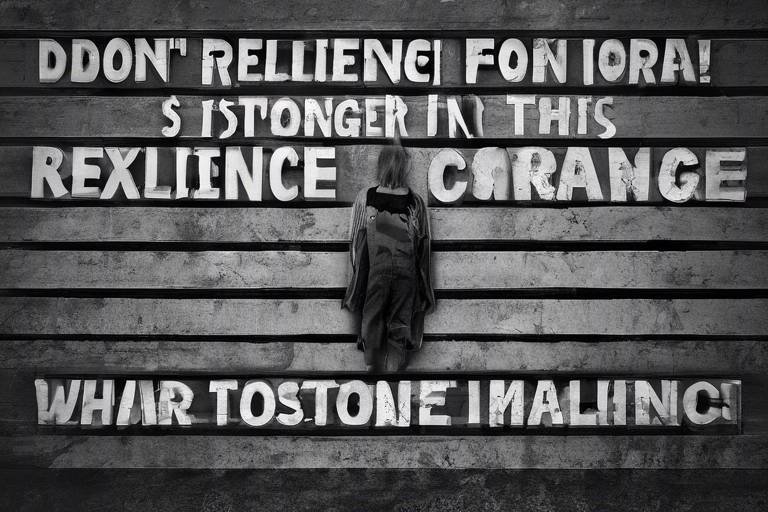The Role of Resilience in Battling Job Loss
Job loss can feel like a sudden storm, leaving you drenched and disoriented, struggling to find your footing again. But just like a tree that bends but doesn’t break in the wind, resilience is the quality that allows you to bounce back from such adversity. It’s not just about surviving; it’s about thriving in the face of challenges. In this article, we’ll explore how resilience can be your guiding light during those dark times when you face job loss, emphasizing strategies to bolster your mental health and foster personal growth.
So, what exactly is resilience? At its core, resilience is the ability to adapt well in the face of adversity, trauma, tragedy, or significant sources of stress. It’s like having an emotional toolbox filled with tools that help you navigate through life’s unexpected hurdles. Understanding this concept is crucial because it sets the stage for how you can approach the emotional and psychological impacts of losing a job. When you cultivate resilience, you’re not just preparing to weather the storm; you’re learning how to dance in the rain.
Job loss can trigger a whirlwind of emotions, from panic to despair. You might find yourself questioning your self-worth or worrying about your financial stability. The psychological impact can be profound, often leading to feelings of anxiety and depression. This is where the importance of resilience shines through. It equips you with the mental fortitude to confront these feelings head-on, providing you with the strength to seek out solutions rather than succumbing to despair.
Moreover, resilience is not a trait that you either have or don’t have; it’s a skill that can be developed over time. Think of it as a muscle that gets stronger the more you use it. By implementing effective coping mechanisms, you can enhance your resilience and promote emotional well-being. For instance, practicing mindfulness and engaging in physical activities can significantly improve your mood and outlook. These practices help you stay grounded and focused, allowing you to navigate the challenges of job loss with greater ease.
Another key aspect of resilience is the power of a strong support network. Surrounding yourself with friends, family, and professional contacts can provide you with the encouragement and perspective needed to move forward. Just like a safety net, these relationships can catch you when you stumble, offering both emotional support and practical advice. Remember, you don’t have to go through this alone; reaching out can make a world of difference.
Finally, it’s essential to recognize that job loss can also serve as a catalyst for personal growth. It’s a chance to reassess your goals, explore new opportunities, and discover hidden strengths. Embracing this change can lead to self-discovery and new paths you may not have considered before. Resilience enables you to view job loss not just as an ending, but as an opportunity for a new beginning.
In conclusion, resilience plays a pivotal role in battling job loss. It empowers you to face challenges, fosters emotional well-being, and opens doors to personal growth. By understanding and cultivating resilience, you can navigate the storm of job loss with confidence and emerge stronger on the other side.

Understanding Resilience
Resilience is more than just a buzzword; it's a vital skill that enables individuals to navigate the stormy seas of life, especially when faced with challenges like job loss. But what exactly does it mean to be resilient? At its core, resilience refers to the ability to bounce back from adversity, adapt to change, and keep moving forward, even when the going gets tough. Imagine a rubber band: it stretches and bends but eventually returns to its original shape. Similarly, resilient individuals may experience setbacks, but they have the inner strength to recover and grow from those experiences.
Understanding resilience is essential, particularly in the context of job loss, which can be one of life's most stressful events. When someone loses their job, it can feel like the ground has been pulled out from under them. The emotional upheaval can lead to feelings of uncertainty, fear, and even hopelessness. However, cultivating resilience can transform this experience into an opportunity for growth and self-discovery. It’s about shifting your mindset from seeing job loss as an end to viewing it as a new beginning.
So why is resilience important? Here are a few key points to consider:
- Emotional Recovery: Resilience helps individuals process their emotions and recover from the initial shock of job loss, allowing them to regain their footing.
- Problem-Solving Skills: Resilient people tend to be better problem solvers. They can analyze their situation, identify options, and make informed decisions about their next steps.
- Positive Outlook: A resilient mindset fosters a more optimistic view of life, helping individuals see challenges as opportunities rather than insurmountable obstacles.
- Adaptability: Resilience encourages adaptability, enabling individuals to pivot and embrace new paths that may lead to unexpected success.
In essence, resilience is not just about surviving tough times; it's about thriving in the face of adversity. By understanding and developing resilience, individuals can equip themselves with the tools necessary to face job loss head-on, turning what could be a devastating event into a transformative journey. The road may be rocky, but with resilience, it can also lead to new horizons and opportunities that were previously unimagined.

The Psychological Impact of Job Loss
Experiencing job loss can feel like a sudden storm crashing down on your life, leaving you drenched in uncertainty and fear. The emotional fallout from losing a job can be overwhelming, triggering a rollercoaster of feelings that can be hard to navigate. It's not just about the financial strain; the psychological impact can be just as profound, affecting your self-esteem, relationships, and overall mental health. Many people find themselves grappling with feelings of anxiety, depression, and a sense of loss that can linger long after the job has ended.
When we lose a job, it can feel as if we've lost a part of our identity. Work often provides us with a sense of purpose and belonging, and without that, we may struggle to understand who we are outside of our professional roles. This can lead to a cycle of negative thoughts, where we question our worth and abilities. The psychological toll can manifest in various ways, including:
- Increased Anxiety: The uncertainty of the future can cause persistent worry and fear, making it hard to focus on anything else.
- Depression: Feelings of sadness and hopelessness can take over, leading to a lack of motivation and joy in daily activities.
- Social Withdrawal: Many individuals isolate themselves, feeling ashamed or embarrassed about their situation, which can exacerbate feelings of loneliness.
Understanding these impacts is crucial because it allows individuals to recognize that they are not alone in their feelings. In fact, studies have shown that a significant percentage of people experience some form of psychological distress after losing their jobs. According to a recent survey,
| Emotional Response | Percentage of Respondents |
|---|---|
| Anxiety | 65% |
| Depression | 58% |
| Feeling of Worthlessness | 47% |
Recognizing these emotional responses is the first step towards recovery. It’s essential to acknowledge and validate these feelings rather than suppress them. Just like a wound needs air to heal, our emotions require expression and understanding. Seeking help from a mental health professional can provide valuable support and coping strategies. Therapy can help individuals process their feelings, develop healthier coping mechanisms, and ultimately, rebuild their self-esteem.
Moreover, resilience plays a crucial role in combating these psychological impacts. By fostering a resilient mindset, individuals can learn to adapt and bounce back from adversity. This doesn’t mean ignoring the pain of job loss but rather finding ways to cope and grow from the experience. Building resilience can transform this challenging time into an opportunity for personal growth, leading to new paths and possibilities that one might not have considered before.
In conclusion, the psychological impact of job loss is significant and multifaceted. It’s essential to recognize the emotional challenges and to seek support when needed. By embracing resilience, individuals can navigate this tough chapter in their lives, emerging stronger and more self-aware. Remember, it’s okay to reach out for help and to take the time you need to heal and rebuild.

Coping Mechanisms
When the storm of job loss hits, it can feel like everything you’ve worked for is swept away in an instant. But just like a tree bending in the wind, we can learn to sway with the challenges rather than break under pressure. are essential tools that help us navigate through the emotional turmoil and uncertainty that often accompany job loss. They are like a lifebuoy thrown to a swimmer struggling in choppy waters, providing support and stability. So, what are some effective ways to bolster our resilience during such trying times?
First and foremost, it’s important to acknowledge your feelings. Suppressing emotions can be detrimental, leading to a buildup of stress and anxiety. Instead, allow yourself to feel the sadness, frustration, or even fear that may arise. Talking to someone about these feelings can be incredibly liberating. Whether it's a close friend, family member, or a therapist, sharing your experiences can lighten the emotional load. Communication is a powerful coping mechanism that fosters connection and understanding, reminding us that we are not alone in our struggles.
In addition to reaching out, engaging in physical activity can be a game-changer. Exercise releases endorphins, the body's natural mood lifters, and can help clear your mind. You don’t have to hit the gym for hours; even a brisk walk or a short yoga session can do wonders for your mental health. Consider incorporating activities you enjoy into your routine, as this will not only distract you but also contribute to your overall well-being.
Another effective coping strategy is mindfulness and meditation. These practices encourage you to stay grounded in the present moment, helping to alleviate feelings of anxiety about the future. By focusing on your breath or engaging in guided meditation, you can create a sense of calm amidst the chaos. For those new to meditation, there are numerous apps and online resources available to help you get started.
Moreover, establishing a daily routine can provide a sense of normalcy and structure, which is often disrupted after job loss. Having a plan for your day can help you stay motivated and focused. Consider setting small, achievable goals for yourself, such as updating your resume, networking, or learning a new skill. These tasks not only keep you occupied but also empower you to take control of your situation.
Lastly, don’t underestimate the power of creative expression. Whether it’s painting, writing, or playing music, engaging in creative activities can serve as a therapeutic outlet. It allows you to process your emotions in a constructive way and can even lead to unexpected insights about yourself and your aspirations. Remember, resilience isn’t just about bouncing back; it’s also about discovering new facets of yourself during the journey.
In summary, coping mechanisms are vital for building resilience in the face of job loss. By acknowledging your feelings, staying active, practicing mindfulness, establishing a routine, and exploring creative outlets, you can navigate this challenging period with greater ease. Think of these mechanisms as your personal toolkit, ready to support you as you rebuild and move forward.

Building a Support Network
When navigating the turbulent waters of job loss, one of the most powerful lifeboats you can have is a strong support network. Imagine you're on a small boat in a stormy sea; without a crew, you're likely to struggle to stay afloat. Similarly, having friends, family, and professional connections around you can make a world of difference. These relationships provide not just emotional support but also practical assistance, whether it's sharing job leads, offering a listening ear, or helping you maintain a positive outlook.
First off, let's talk about the emotional aspect. Losing a job can feel isolating, almost like being in a dark tunnel with no light at the end. However, reaching out to your support network can illuminate that tunnel. Friends and family can provide encouragement and understanding, reminding you that you’re not alone in this journey. They can help combat feelings of inadequacy and anxiety that often accompany job loss. It’s essential to communicate openly with them about your feelings; you might be surprised at how many people have faced similar challenges and can share their experiences.
Next, consider the practical benefits of a support network. This is where professional connections come into play. Networking can open doors to new job opportunities that you might not find on job boards. Attend industry meetups, webinars, or even casual coffee chats with former colleagues. You never know who might have a lead or a suggestion that could help you land your next role. It's like casting a wider net in the ocean; the more connections you have, the better your chances of catching something valuable.
In addition to friends and professional contacts, consider joining online communities or local support groups. These platforms can provide a sense of belonging and help you connect with others who are experiencing similar challenges. Here’s a quick overview of how to effectively build your support network:
- Reach Out: Don’t hesitate to reach out to old friends or colleagues. A simple message can rekindle connections.
- Be Open: Share your situation candidly. People are often willing to help once they understand what you’re going through.
- Utilize Social Media: Platforms like LinkedIn can be great for networking and finding job opportunities.
- Join Support Groups: Look for local or online groups focused on job loss or career transitions.
Ultimately, building a support network is not just about gathering contacts; it's about fostering genuine relationships. Think of it as planting a garden. You need to nurture these connections to see them flourish. Regularly check in with your contacts, offer help when you can, and maintain those relationships even after you find a new job. In doing so, you’ll create a robust network that can support you through not just job loss but many of life’s challenges.
Remember, resilience is not just an individual trait; it can also be cultivated through the people around you. So, take the time to invest in your relationships. You’ll find that during tough times, having a strong support network can make all the difference, turning a daunting experience into a journey of growth and renewal.
- How can I start building my support network? Begin by reaching out to friends and family, and consider joining professional groups or online communities.
- What if I feel embarrassed to ask for help? Remember, everyone faces challenges; it’s okay to seek support. Most people appreciate being asked and are willing to help.
- How can I maintain relationships in my network? Regular check-ins, sharing updates, and offering help when you can are great ways to keep connections strong.

Practicing Self-Care
When faced with the challenges of job loss, practicing self-care becomes not just a luxury, but a necessity. Think of self-care as your personal lifeline, a way to keep your emotional and physical health afloat during turbulent times. It's crucial to remember that taking care of yourself isn't selfish; it's about equipping yourself with the strength and resilience needed to navigate this storm. Just like a car needs fuel to run, you need to recharge your batteries to face the day-to-day challenges that come with job loss.
Self-care can take many forms, and it's essential to find what resonates with you. For some, it might mean indulging in a favorite hobby, while for others, it could involve practicing mindfulness through meditation or yoga. The key is to prioritize activities that bring you joy and relaxation. Here are a few self-care strategies that can help you maintain your mental health during this trying period:
- Physical Activity: Engaging in regular exercise can boost your mood and energy levels. Whether it's a brisk walk in the park or an intense workout session, moving your body releases endorphins—those feel-good hormones that can help combat feelings of sadness and anxiety.
- Healthy Eating: Nourishing your body with healthy foods plays a significant role in your mental well-being. Think of your body as a garden; it thrives when you give it the right nutrients. Incorporate fruits, vegetables, and whole grains into your diet to help support your mental health.
- Sleep Hygiene: Never underestimate the power of a good night's sleep. Quality sleep is vital for emotional regulation and cognitive function. Establishing a consistent sleep routine can improve your overall mood and resilience.
Moreover, don't forget the importance of mindfulness. Taking a few moments each day to practice mindfulness can help ground you and reduce stress. This could be as simple as sitting quietly, focusing on your breath, or even journaling your thoughts and feelings. By acknowledging your emotions, you allow yourself to process them rather than suppress them, which is crucial for resilience.
Lastly, remember that self-care is not a one-time event but an ongoing process. Just as you wouldn't expect a plant to thrive without regular watering and care, you must continually invest in yourself. So, whether it's through a soothing bath, reading a book, or enjoying a cup of tea while watching the sunset, find those moments that help you recharge. In doing so, you build a robust foundation of resilience that will support you through the ups and downs of job loss.
Q1: What are some quick self-care practices I can do daily?
A1: Some quick self-care practices include taking a short walk, practicing deep breathing exercises, or dedicating a few minutes to a hobby you love.
Q2: How can I stay motivated to practice self-care during tough times?
A2: Setting small, achievable goals can help. Start with one self-care activity a day and gradually build on it. Remember, it’s about progress, not perfection!
Q3: Is self-care the same as being selfish?
A3: Absolutely not! Self-care is about taking care of your needs so that you can be your best self for others. Think of it as putting on your oxygen mask first before helping others.

Personal Growth Opportunities
Job loss, while often viewed as a setback, can actually serve as a powerful catalyst for personal growth. Imagine being in a storm that seems relentless; it’s easy to focus on the rain. But if you take a moment to look around, you might notice that the storm has washed away some old, unhelpful beliefs and made space for new, vibrant possibilities. This shift in perspective is where resilience plays a crucial role. Instead of seeing job loss merely as an end, it can be reframed as an opportunity to explore new paths that may have been overlooked.
During these challenging times, individuals often find themselves reflecting on their passions and interests. This self-reflection can lead to the discovery of new skills or hobbies that can be transformed into a career. For instance, someone who has always enjoyed cooking might consider turning that passion into a catering business. The key is to recognize that the time freed up by job loss can be used for self-discovery.
Moreover, resilience encourages individuals to step outside their comfort zones. It’s like a bird learning to fly; at first, it may seem daunting, but once it takes that leap, it discovers the joy of soaring through the skies. Engaging in new activities, whether it’s enrolling in a course, volunteering, or networking, can lead to unexpected opportunities. These experiences not only enhance skill sets but also build confidence. The more you try, the more you learn about yourself and your capabilities.
In addition, job loss can provide the perfect backdrop for fostering meaningful connections. When you’re navigating through tough times, it’s important to reach out and connect with others who may be experiencing similar situations. This could be through support groups, online forums, or even local meetups. Sharing stories and strategies can not only provide comfort but also inspire new ideas and collaborations. Remember, sometimes the best opportunities come from the most unexpected places.
Lastly, it’s crucial to embrace the idea that personal growth is not just about professional advancement. It’s also about emotional and psychological development. Engaging in practices such as mindfulness, journaling, or therapy can significantly enhance your resilience. These practices help individuals process their feelings and thoughts, allowing them to emerge stronger and more self-aware. Just as a tree grows stronger roots after a storm, you too can cultivate a deeper understanding of yourself during this time.
In conclusion, while the experience of job loss can be daunting, it also opens doors to personal growth and new opportunities. By embracing resilience, individuals can transform adversity into a stepping stone for a brighter future. Remember, every ending is simply a new beginning waiting to unfold.
- What is resilience? Resilience is the ability to recover from setbacks and adapt to challenging situations.
- How can I build resilience after job loss? You can build resilience by creating a support network, practicing self-care, and engaging in self-reflection.
- Can job loss lead to new opportunities? Yes, job loss can provide the time and motivation to explore new career paths and personal interests.
- What self-care practices can enhance resilience? Practices such as mindfulness, exercise, and maintaining a healthy routine can greatly improve mental well-being during challenging times.

Developing a Resilient Mindset
Developing a resilient mindset is like building a sturdy bridge over turbulent waters; it allows you to navigate the challenges of job loss without being swept away by the currents of despair. Resilience isn't just about bouncing back; it's about bouncing forward, transforming setbacks into stepping stones. So, how do you cultivate this invaluable trait? Let’s dive into some practical tips and techniques that can help you foster resilience and maintain a positive outlook during tough times.
First and foremost, self-awareness plays a crucial role in developing resilience. Understanding your emotions and reactions to job loss can help you identify patterns that may hinder your recovery. Ask yourself questions like, "What triggers my feelings of anxiety?" or "How do I typically respond to stress?" By acknowledging these triggers, you can devise strategies to manage them effectively. Remember, awareness is the first step toward change.
Next, goal setting is essential in creating a structured approach to overcoming job loss. Setting achievable goals gives you a sense of direction and purpose. Start with small, manageable objectives that can lead to larger aspirations. For instance, you might aim to update your resume by the end of the week or connect with three former colleagues for networking. This process not only keeps you focused but also instills a sense of accomplishment as you meet each goal.
Moreover, embracing change is another vital aspect of developing a resilient mindset. Change can be intimidating, especially when it involves losing a job. However, viewing change as an opportunity rather than a setback can shift your perspective. Consider this: every closed door opens a new window. By remaining open to new possibilities, you can discover paths you never considered before. This mindset can lead to unexpected opportunities that align more closely with your passions and skills.
Lastly, maintaining a positive support system is instrumental in nurturing resilience. Surrounding yourself with encouraging friends, family, and mentors can provide the emotional support needed to weather the storm. They can offer fresh perspectives and remind you of your strengths when self-doubt creeps in. So, don’t hesitate to reach out and share your journey with those who uplift you.
In summary, developing a resilient mindset involves a combination of self-awareness, goal setting, embracing change, and leveraging a supportive network. Each of these elements works together to create a robust foundation that can help you not just survive job loss, but thrive in the face of it. Remember, resilience is not a destination but a journey, and every step you take towards fostering this mindset brings you closer to reclaiming your path.
- What is resilience? Resilience is the ability to adapt and recover from adversity, challenges, or setbacks.
- How can I improve my resilience? You can improve resilience by practicing self-awareness, setting achievable goals, embracing change, and building a supportive network.
- Why is a resilient mindset important during job loss? A resilient mindset helps you cope with the emotional challenges of job loss and enables you to find new opportunities for growth and success.

Goal Setting and Planning
When faced with the daunting reality of job loss, goal setting and planning can serve as your guiding light through the fog of uncertainty. Think of it like navigating a ship through a stormy sea; without a clear destination, you might drift aimlessly, tossed about by the winds of despair. However, by establishing specific goals and a structured plan, you can chart a course that leads to recovery and renewed purpose.
First, it’s essential to understand what you want to achieve. Ask yourself: What are my short-term and long-term goals? Short-term goals might include updating your resume or applying to a certain number of jobs each week, while long-term goals could involve pursuing further education or transitioning to a new career path. By breaking down your aspirations into manageable steps, you can create a roadmap that makes the journey less overwhelming.
Here's a simple approach to effective goal setting:
- Specific: Clearly define what you want to achieve. Instead of saying, “I want a job,” specify, “I want to apply for five marketing positions by the end of the week.”
- Measurable: Ensure that your goals can be tracked. This could mean setting a timeline for applications or measuring the number of networking events you attend.
- Achievable: Set realistic goals that challenge you but are still attainable. For instance, if you’re new to a field, applying for entry-level positions might be more appropriate than aiming for a managerial role.
- Relevant: Align your goals with your career aspirations and personal values. This relevance will keep you motivated during tough times.
- Time-bound: Assign deadlines to your goals. Having a timeline creates a sense of urgency and helps you stay focused.
Once you have your goals set, the next step is to create a detailed plan. This plan should outline the actions you will take to achieve your goals. Consider using a table to organize your objectives and the steps needed to reach them:
| Goal | Action Steps | Deadline |
|---|---|---|
| Update Resume | Research templates, write content, and get feedback from peers. | 1 week |
| Apply for Jobs | Identify job boards, customize cover letters, and submit applications. | Ongoing (5 applications per week) |
| Network | Attend local meetups, connect on LinkedIn, and reach out to former colleagues. | 2 months |
Having this kind of structured approach not only keeps you organized but also provides a sense of accomplishment as you tick off completed tasks. Each small victory can boost your confidence and reinforce your resilience. Remember, it’s not just about the destination; it’s about the journey and the lessons learned along the way.
Additionally, don't forget to regularly review and adjust your goals as necessary. Life is unpredictable, and sometimes the path you thought you’d take might change. By remaining flexible and open to new opportunities, you can adapt your plans to better suit your evolving circumstances.
In conclusion, setting clear goals and creating a structured plan are vital components in navigating the tumultuous waters of job loss. They empower you to take control of your situation, focus on your strengths, and ultimately emerge stronger and more resilient than before.

Embracing Change
Change is an inevitable part of life, much like the seasons that shift around us. When faced with job loss, embracing change becomes not just a necessity but a powerful tool for transformation. It's easy to feel overwhelmed when the ground beneath your feet seems to vanish, but understanding that change can lead to new beginnings is crucial. Think of it this way: just as a caterpillar must undergo a metamorphosis to become a butterfly, we too must adapt and evolve in the face of adversity.
One of the first steps in embracing change is to shift your mindset. Instead of viewing job loss as a setback, consider it an opportunity for growth. This perspective allows you to explore new avenues and possibilities that may not have been on your radar before. For instance, you might discover a passion for a field you had never considered or realize that you have the skills to start your own business. The key is to remain open to these new experiences and to actively seek them out.
Moreover, embracing change means letting go of the past. It's natural to grieve the loss of your job, but holding onto the past can prevent you from moving forward. Acknowledge your feelings, but don’t let them define you. Instead, focus on what you can control: your actions and responses to the situation. This proactive approach not only fosters resilience but also empowers you to take charge of your future.
In practical terms, embracing change can be facilitated through several strategies:
- Stay Curious: Cultivate a sense of curiosity about the world around you. This can lead to discovering new interests or skills that can be beneficial in your job search.
- Network Actively: Connect with others in your field or in fields of interest. Networking can open doors to opportunities you may not have known existed.
- Learn Continuously: Take advantage of online courses or workshops to enhance your skills or learn new ones. This not only makes you more marketable but also keeps your mind engaged.
Finally, remember that embracing change is a journey, not a destination. There will be ups and downs, and that’s perfectly okay. Celebrate small victories along the way, whether it’s landing an interview or simply feeling more optimistic about the future. Each step forward is a testament to your resilience and ability to adapt.
Q1: How can I maintain a positive outlook during job loss?
A1: Focus on the opportunities that come with change, engage in self-care, and surround yourself with supportive people.
Q2: What are some effective ways to network after job loss?
A2: Attend industry events, join professional groups on social media, and reach out to former colleagues for informational interviews.
Q3: How can I develop new skills during this time?
A3: Consider enrolling in online courses, attending workshops, or volunteering to gain experience and learn new skills.
Frequently Asked Questions
- What is resilience and why is it important during job loss?
Resilience is the ability to bounce back from difficulties and adapt to challenges. During job loss, resilience is crucial as it helps individuals cope with the emotional and psychological impact of losing a job, enabling them to navigate through tough times and emerge stronger.
- How can I cope with the emotional impact of job loss?
Coping with job loss can be tough, but there are effective strategies to manage your emotions. Engaging in self-care, seeking support from friends and family, and practicing mindfulness can significantly help in reducing anxiety and depression associated with unemployment.
- What are some effective coping mechanisms for job loss?
Some effective coping mechanisms include setting realistic goals, creating a daily routine, and staying connected with your support network. Additionally, exploring new hobbies or volunteering can provide a sense of purpose and help maintain a positive mindset.
- How important is a support network in overcoming job loss?
A strong support network is incredibly important when facing job loss. Friends, family, and professional contacts can provide emotional support, practical advice, and even job leads, helping you feel less isolated and more empowered during this challenging time.
- What role does self-care play in building resilience?
Self-care is fundamental in maintaining mental health and resilience. Regular exercise, a balanced diet, and adequate sleep can enhance your emotional well-being, making it easier to cope with stress and uncertainty during job loss.
- Can job loss lead to personal growth?
Absolutely! Job loss can serve as a catalyst for personal growth. It often pushes individuals to reassess their goals, explore new career paths, and develop new skills, ultimately leading to greater self-discovery and opportunities.
- How can I develop a resilient mindset?
Developing a resilient mindset involves cultivating positive thinking, setting achievable goals, and staying adaptable. Embracing change and viewing challenges as opportunities for growth can significantly enhance your resilience in the face of adversity.
- What strategies can I use for goal setting during job loss?
When setting goals during job loss, focus on creating specific, measurable, achievable, relevant, and time-bound (SMART) goals. Break larger goals into smaller, manageable steps, and regularly review your progress to stay motivated and on track.
- How can I embrace change during my job transition?
Embracing change means being open to new possibilities and adapting to your evolving circumstances. Approach your job transition with curiosity, seek out new experiences, and remind yourself that change often leads to growth and new opportunities.



















